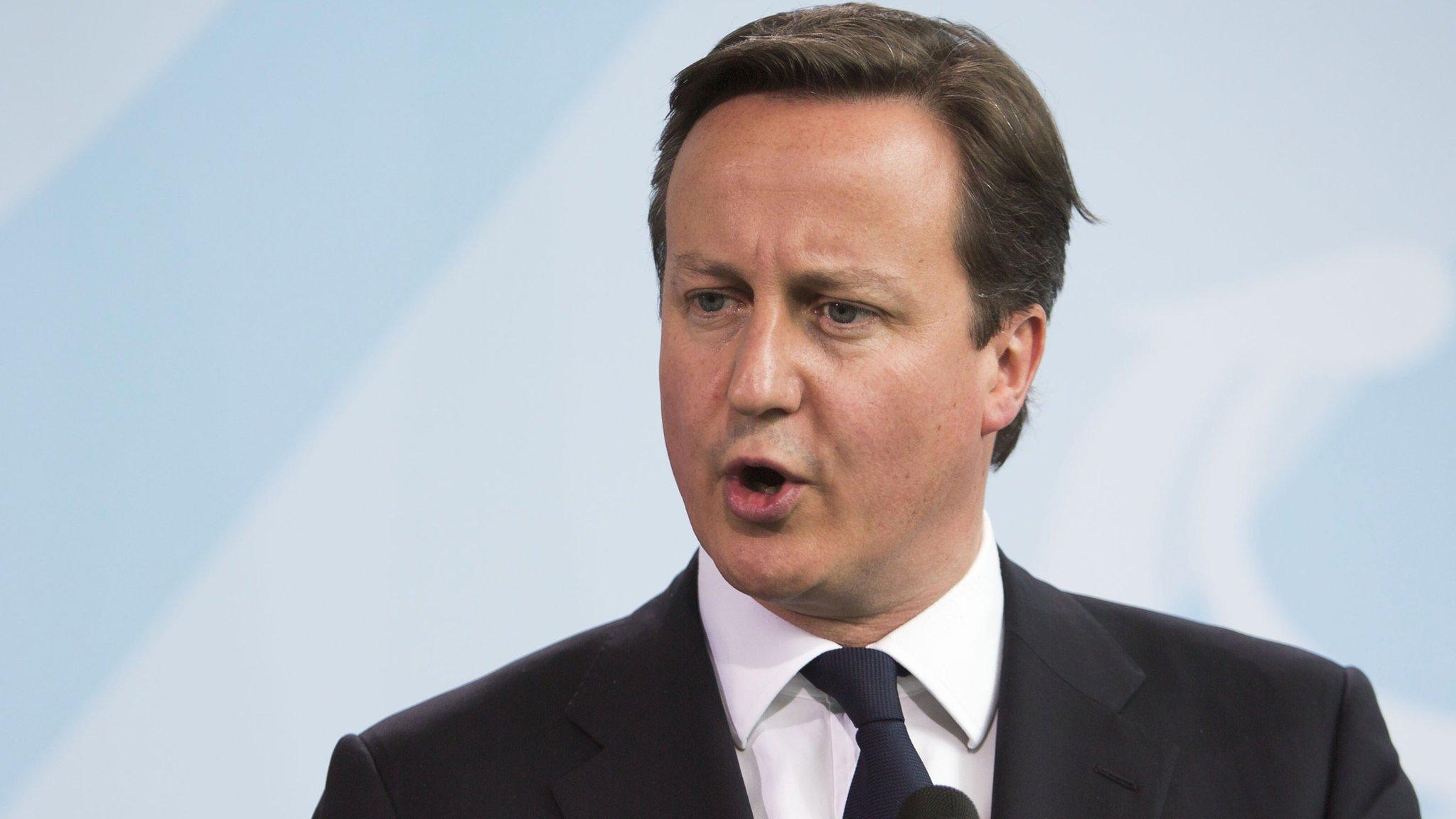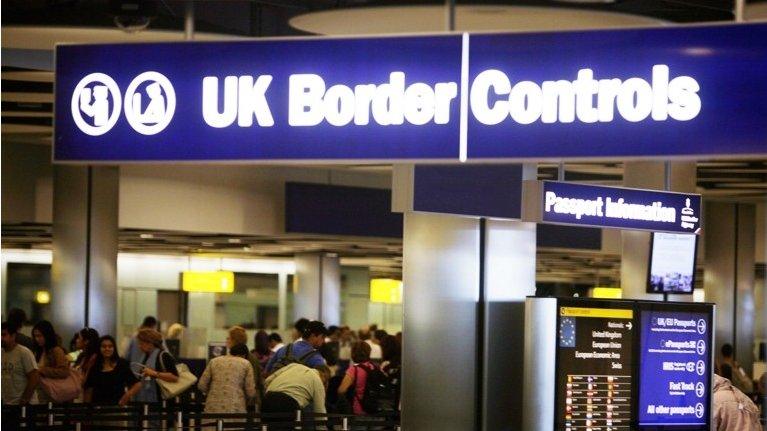British Social Attitudes Report: 'Speak English' to be British
- Published

An overwhelming majority believe people must speak English to be "truly British"
The number of people who think you must speak English to be considered "truly British" has increased over the past 10 years, a survey suggests.
The annual British Social Attitudes, external survey of 3,000 people found 95% agreed it was important to speak English to be British, up from 86% in 2003.
It also found 61% thought EU immigrants should have to wait three years before being able to claim benefits.
Almost a quarter said the main reason immigrants came to the UK was benefits.
NatCen Social Research has been running the report for 31 years. Its survey assesses changing social attitudes in Britain.
The report's authors say a "key finding" of their latest work is that "the threshold to being considered British has got higher over time".
Born in Britain?
The proportion of people who agreed it was important a person should have lived in Britain for most of their life to be considered British is now 77%, up from 69% in 2003.
Some 74% agreed it was important to have been born in Britain to be considered British - down from 76% in 2003.
And 85% agreed "respecting institutions/laws" was very or fairly important to be considered British - up on 82% in 2003.
On immigration, 77% of people wanted immigration reduced a lot or a little - a figure that is sharply up on 1995 but "largely unchanged since 2008".
The report's authors said the British view that current immigration was too high was "well established and stable".
Half thought the main reason immigrants came to Britain was for work, but 24% said the main reason was to claim benefits.
The proportion of people who believe immigrants increase crime rates in Britain went up from 37% in 2003 to 43% in 2013.
London divide
The authors said the survey also echoed the divide on attitudes to immigration between London and the rest of Britain reflected in the performance of the anti-EU party, UKIP, in recent elections.
The survey suggested 54% of Londoners thought immigration was good for the economy, but this figure dropped to 28% outside the capital.
Referring to the 61% who thought EU immigrants should have to wait at least three years before being able to claim benefits, the report's authors said this contrasted with rules that came into force this year requiring EU migrants to show they are earning at least £149 a week for three months before being able to access a range of benefits.
This, the report said, demonstrated a "considerable gap between public opinion and reality".
Other findings include:
Around half (51%) agreed it was important to have British ancestry to be considered British
While 24% agreed being Christian was an important element of being British, this was down from 32% in 1995
A falling proportion of people - 27%, down from 40% in 2003 - believed legal immigrants who were not British citizens should have the same rights as British citizens
In Scotland, 62% thought an independent Scotland should keep the same King or Queen as England
And 79% of Scots said they should continue to use the pound
Almost 70% of people in England and Wales believed an independent Scotland should be allowed to share the pound
A third of people - 32% - say they "almost never" trust British governments of any party "to place the needs of the nation above the interests of their own political party". This figure stood at 11% in 1986
Trojan Horse
Penny Young, chief executive of NatCen Social Research, said: "In an increasingly diverse, multi-cultural country, we might expect people to be more relaxed about what it means to be British, yet the trend is going in the opposite direction.
"It is now harder to be considered British than in the past and one message comes through loud and clear; if you want to be British, you must speak English."
She added that the public "want tougher rules on benefits and many are unaware of the policies that are in place to control immigration".
Rules on immigrants claiming benefits vary depending on which benefit they want to claim.
The government has been imposing new restrictions in recent months, including one which came into force in January under which migrant jobseekers must be in the UK for three months before they can claim Jobseeker's Allowance.
The survey interviews were carried out from June to November 2013 - before the so-called Trojan Horse attempt by Islamists to take control of schools in Birmingham became public knowledge.
Education Secretary Michael Gove responded to the Trojan Horse issue by saying schools should promote "British values".
- Published17 June 2014

- Published15 June 2014

- Published10 June 2014
- Published10 June 2014

- Published9 April 2014

- Published10 September 2013
